My Engineering Career Journey: Lessons, Mistakes, and Advice for the Next Generation
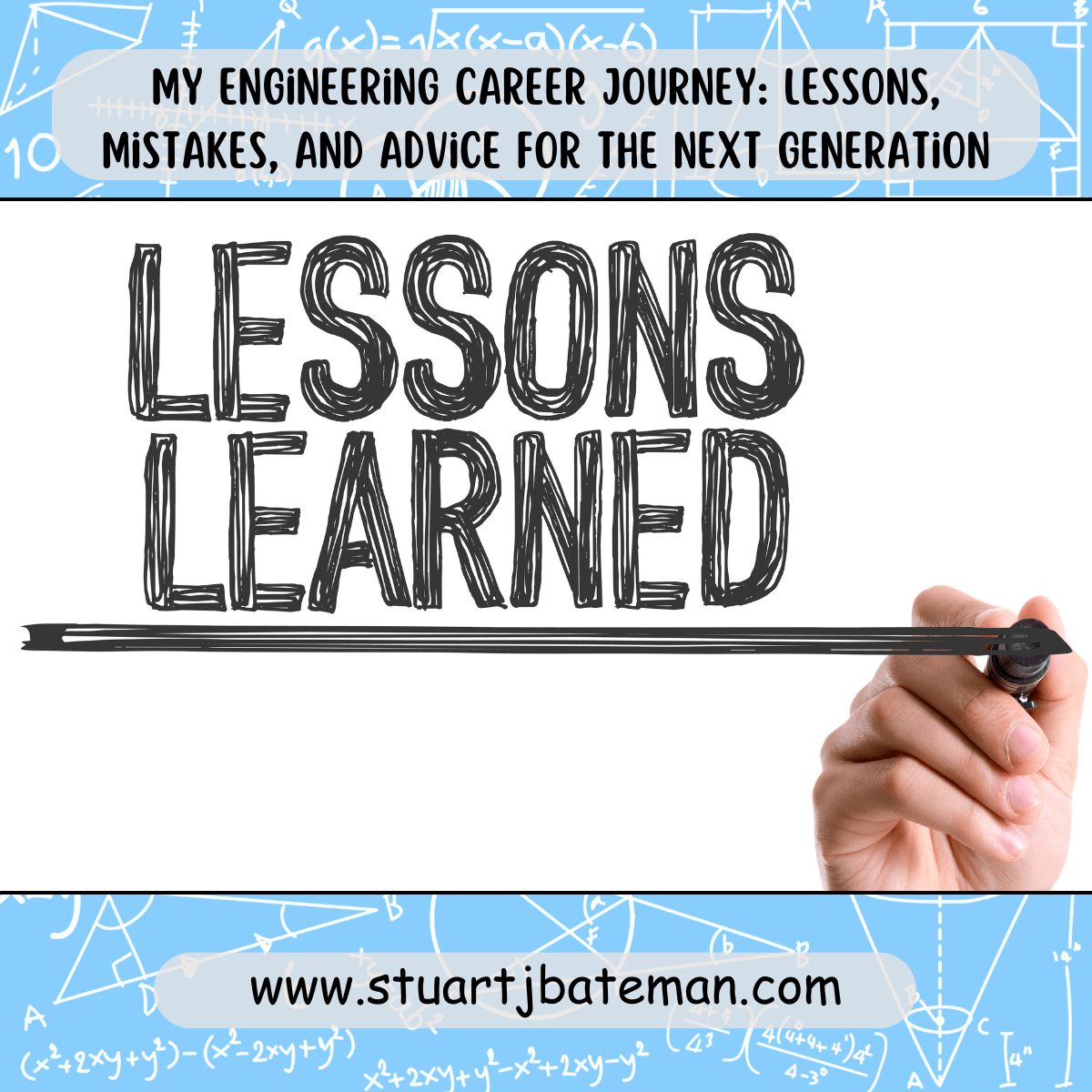
Learning is not compulsory… neither is survival.
— W. Edwards Deming
Starting Out: A Quick Launch and a Missed Opportunity
When I graduated with my engineering degree, I didn’t take time off to travel or weigh my options—I went straight into work. Just a weekend later, I started my first role at an engineering firm. It was a practical, hands-on start to my engineering career journey, and while I learned a lot, I was still figuring things out as I went.
At the same time, I had an ambition to join the RAF as an Engineering Officer. I went through the selection process but quickly realised I hadn’t prepared well enough. I didn’t make the cut—and unfortunately, I never went back to try again. Looking back, it’s clear that lack of preparation, not capability, held me back. That early experience taught me that in engineering and in life, planning and preparation are just as important as skill.
Despite that initial setback, my time in industry began to shape who I was professionally. Over the years, I worked across four different companies, each with different cultures, tools, and challenges. But during that time, I didn’t have a structured development plan. I was gaining experience without clear direction—valuable, yes, but unfocused.
Check out my current role as a Production Engineering Manager and what a day is like for me here.
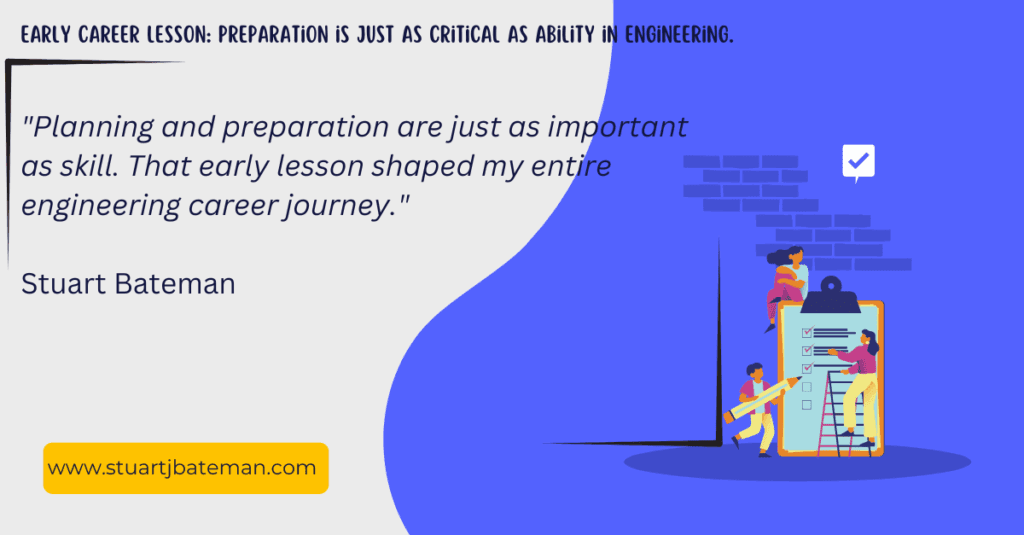
Professional Registration and Rediscovering Structured Growth
Roughly a decade into my career, I began working towards professional registration. I started with Incorporated Engineer (IEng) and later progressed to Chartered Engineer (CEng). This step was a turning point in my engineering career journey. Preparing the submission helped me recognise how much I’d already achieved and, equally, what I still needed to grow further.
Alongside this, I began attending more industry events. Southern Manufacturing, in particular, became an annual staple. These events offered a wealth of knowledge—not just from the sessions and exhibitors, but from conversations with engineers across sectors. You get exposure to trends, challenges, and technologies you might not see in your day job.
The learning didn’t stop there. About six years ago, I finally embraced structured self-learning. Life had previously taken priority, and professional development had been more incidental than planned. But now I had clear goals. That renewed mindset also led to a new initiative: sharing what I’d learned.
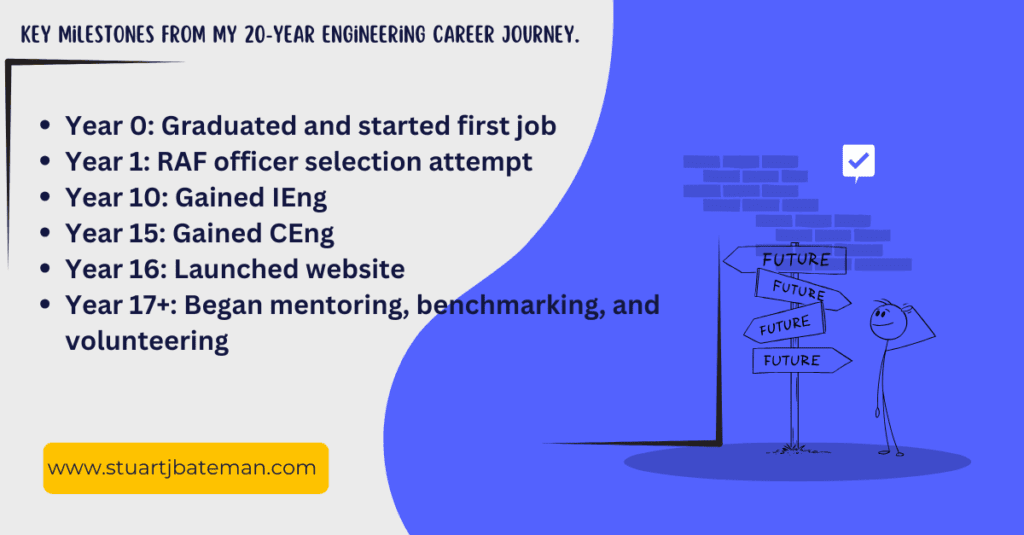
Giving Back: Mentoring, Teaching and Community Learning
After gaining my CEng, I launched a website with the aim of helping other engineers learn and grow. To my surprise, I had more to share than I realised—and I learned even more by teaching others. This opened the door to mentoring. I started by finding a mentor myself through the IMechE, and over time, I transitioned into mentoring others. These relationships were as beneficial to me as they were to my mentees. They encouraged reflection, sharpened my communication, and kept me engaged with the wider profession.
I also began visiting other companies—over 20 in total—through industry networks and contacts. Benchmarking site visits gave me valuable insight into how different teams tackled common problems. It was eye-opening to see what worked elsewhere and what didn’t, and these visits often sparked ideas I could bring back to my own workplace.
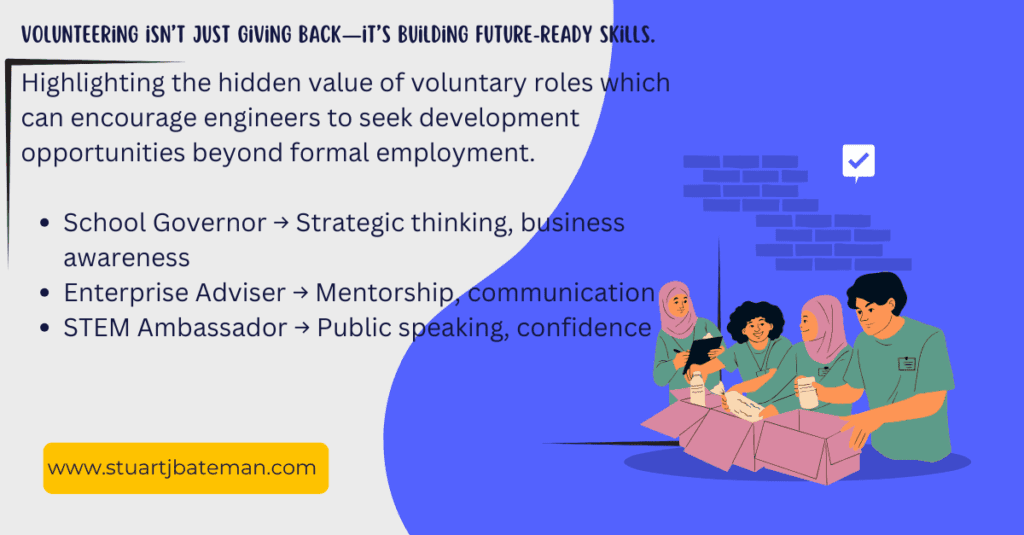
Another area that helped me grow was volunteering. Becoming a school governor gave me exposure to strategic thinking, financial planning, and leadership responsibilities well before these were available to me at work. I also joined programmes like the Enterprise Adviser Network and became a STEM Ambassador. Speaking in schools and advising students helped develop my confidence, presentation, and mentoring skills—key traits in any engineering role, regardless of seniority.
Lessons Learned and Advice to Fellow Engineers for their Engineering Career Journey
Looking back, I can see areas where I could have done better. Had I applied some of Stephen Covey’s 7 Habits of Highly Effective People earlier—being proactive, beginning with the end in mind, or sharpening the saw—I might have reached some milestones sooner.
For example, I didn’t plan a post-university learning path. I didn’t prioritise building a strong network until later. And I didn’t fully understand the power of volunteering until I experienced its benefits first-hand. But reflection is part of the journey. The important thing is to use those lessons to help others.
My advice for early-career engineers is to invest time in identifying the skills that will offer the best long-term value. Think beyond your current role. I once told a mentee to consider which skill could shape their future, and they chose data analytics. That decision led them into a role in data science where they now thrive.
The engineering career journey is long, but it doesn’t have to be lonely. There are countless resources, mentors, and communities that can support you—if you’re willing to reach out.
For a more detailed account of how I became a Chartered Engineer, visit:
stuartjbateman.com/chartered-engineer
Key Insights from My Engineering Career Journey
- Your first job doesn’t define your entire career—but preparation does matter.
- Set goals early, especially if you’re pursuing professional registration.
- Attend industry events regularly to stay connected and inspired.
- Volunteering accelerates skill development beyond the workplace.
- Mentoring helps both parties grow—seek one and become one.
- Always keep learning, even if it’s just 20 minutes a day.
- Benchmarking and networking offer fresh ideas and collaboration.
- Reflect often. It’s how experience turns into wisdom.
Some resources I found helpful:
During my engineering career journey to date, I’ve had the benefit of coming across several resources that have help my learn, grow and develop. Here are a few to help you too –
- The Free learning list
- Clearer thinking
- Personal SWOT analysis
- Books by Austin Kleon
- Stephen Covey’s 7 Habits
Resources (Internals) – Careers
Check out these interviews I conducted with 10 engineers you can find and chat to on LinkedIn:
- Danny Murphy – Automation Engineer
- Kyle Shropshire – Design Engineer
- Chris Stasiuk – Engineering Coach
- Bug Meehan – Design Engineer
- John McClure – Energy Engineer
And also check out these posts related to this topic:
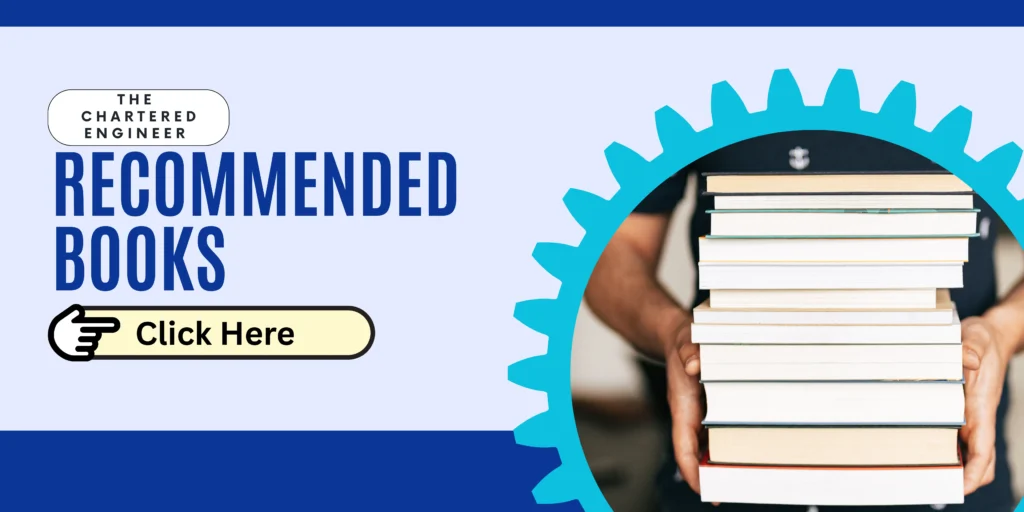
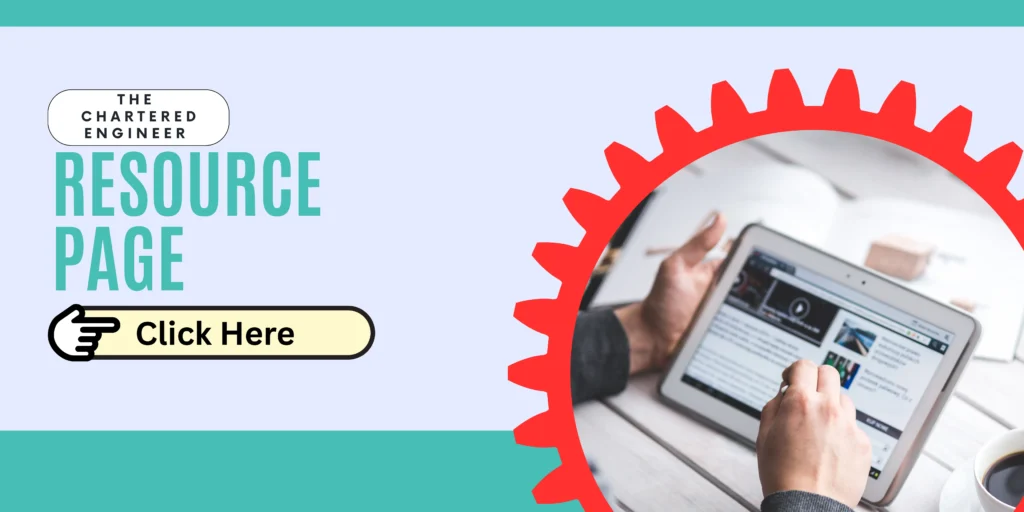
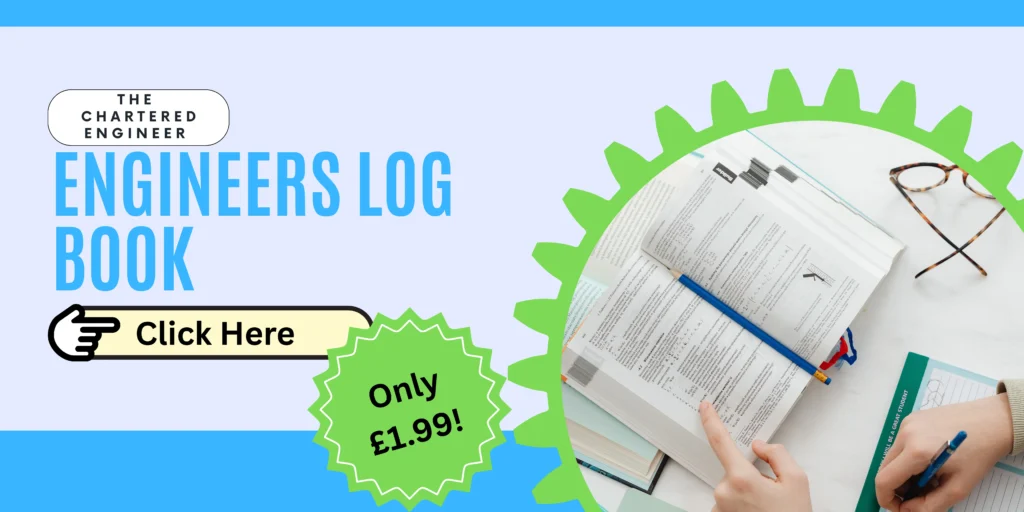
What are your thoughts? Have I covered everything or is there more you know and would like to share?
I’m always learning and improving this site and my blogs, so please feel free to get in touch with me via LinkedIn or this site to discuss any topics I have covered.
If you’re having trouble finding ways to progress check out these sites filled with free learning tools:


Discover more from The Chartered Engineer
Subscribe to get the latest posts sent to your email.